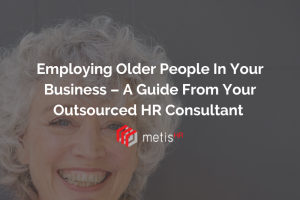
Employing Older People In Your Business – A Guide From Your Outsourced HR
As a business owner and employer, it will not have escaped your notice that there are more older people staying on in the workplace these
Articles

As a business owner and employer, it will not have escaped your notice that there are more older people staying on in the workplace these
In 2023, safeguarding in recruitment for children and vulnerable people services remains a critical challenge for organisations. When recruiting for posts working with this group

The hiring landscape continues to evolve but there are interview questions to avoid at all costs. Job interviews can be nerve-wracking for both employers and

There are many businesses in which employing under 18s can bring huge advantages, and many business owners want to be able to employ young people

There are many businesses in which employing under 18s can bring huge advantages, and many business owners want to be able to employ young people
New employee not working out? Are you thinking that you have a new employee not working out? Do you think the person you appointed isn’t
How do I decide how much to pay someone is a surprisingly common question. Although not everyone is motivated by money, we know that most
There are some common HR issues that most businesses with staff will face. Many businesses trust these issues to an HR professional, either in-house or
Discrimination at work is unlawful, yet unfortunately, it still happens. Everyone has the right to be treated fairly at work and HR plays an important
HR issues in British Manufacturing are looming large. Britain’s manufacturers are facing the biggest shortage of skilled workers since 1989. The UK has record levels
Categories
Copyright © 2020 Metis HR Ltd. Registered Company No: 07554123. All Rights Reserved
Website by Thomas Cole Digital